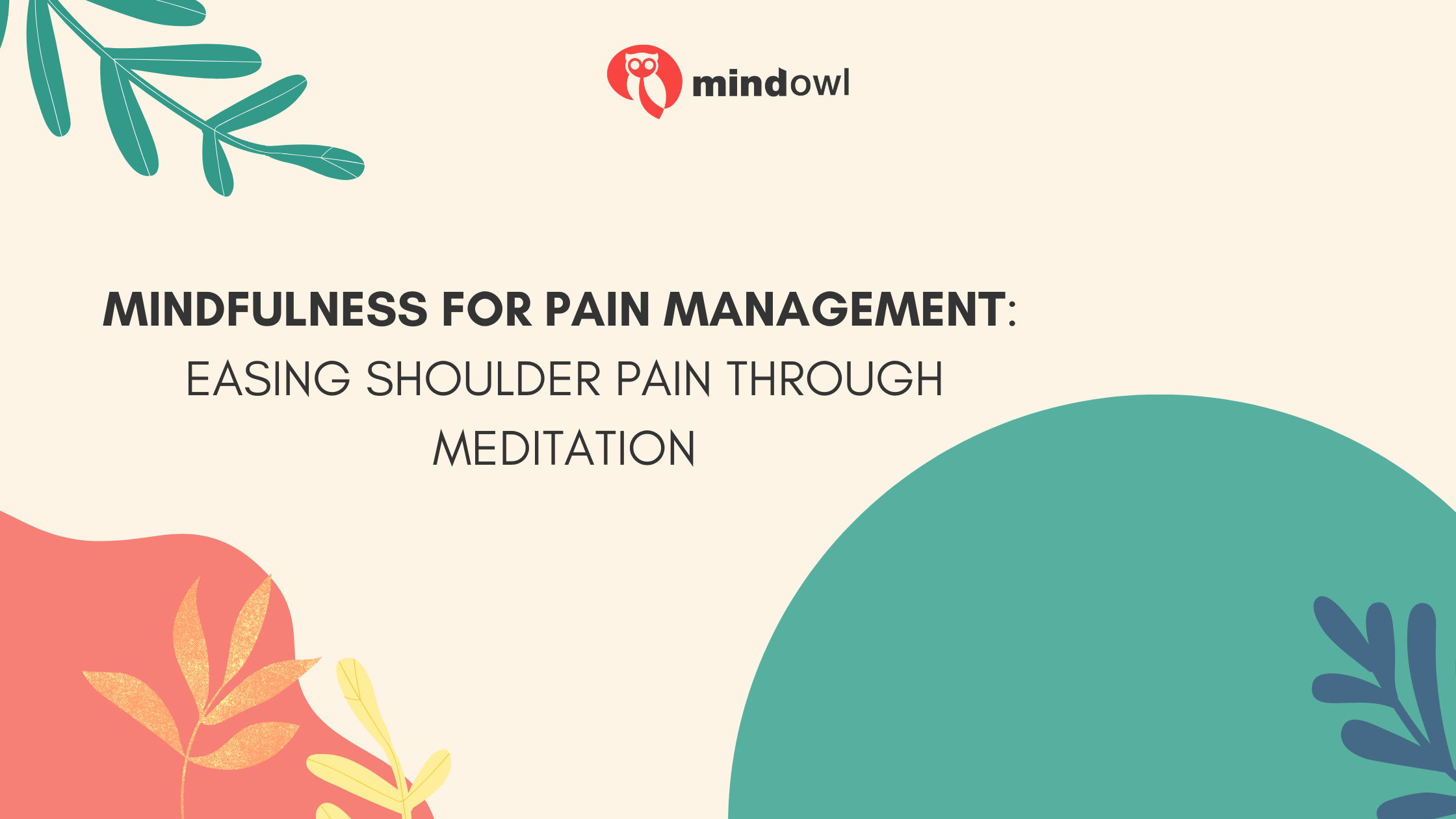Persistent shoulder discomfort can be crippling, impairing everyday functioning and general well-being. While traditional treatments like medication and physical therapy are often effective, mindfulness and meditation have emerged as powerful complementary approaches. By fostering a deeper connection between the mind and body, mindfulness practices can help individuals better manage shoulder pain and improve their overall well-being.

Consulting Local Orthopedic Specialists
While mindfulness and meditation can significantly aid in managing shoulder pain, consulting with local orthopedic specialists is crucial for a comprehensive treatment plan. These experts are trained to diagnose the underlying causes of shoulder pain, whether it be due to arthritis, tendonitis, or a rotator cuff injury, and can offer specialized treatments tailored to individual needs. Whether it’s orthopedic specialists of dallas or a local practice in New Jersey, seeking professional medical advice is an essential step towards finding relief from chronic shoulder pain. This can also help prevent further damage and complications in the long run.
The Science Behind Mindfulness and Pain Relief
Research has shown that mindfulness and meditation can have a profound impact on pain perception and management. When individuals practice mindfulness, they encourage a state of focused awareness of the present moment, which can help to interrupt negative thought patterns and reduce the emotional response to pain. This process involves several neural mechanisms, including the activation of brain regions involved in pain modulation, such as the anterior cingulate cortex and the prefrontal cortex. Additionally, mindfulness meditation can lead to changes in brain chemistry, increasing the levels of neurotransmitters like serotonin and dopamine, which play a role in mood regulation and pain relief. By altering the way the brain processes pain signals, mindfulness can not only reduce the intensity of pain but also improve an individual’s overall emotional and psychological resilience.
Meditation Techniques for Shoulder Pain
Incorporating specific meditation techniques into your daily routine can play a significant role in managing shoulder pain. One effective method is body scan meditation, where individuals systematically focus on each part of their body, including the shoulders, noticing sensations without judgment. This practice helps cultivate awareness and can promote relaxation in the affected area. Another useful technique is guided imagery, where a practitioner uses descriptive language to create relaxing scenarios in the mind. This method can transport individuals to a peaceful environment, diverting attention away from the pain and reducing stress.
Loving-kindness meditation is also beneficial. By generating feelings of compassion and goodwill towards oneself and others, this practice can reduce the emotional strain associated with chronic pain. Lastly, breath awareness meditation involves focusing solely on the breath, observing each inhale and exhale. This technique can foster a sense of calm and help manage the tension often held in the shoulders. By consistently practicing these meditation techniques, individuals can develop a more resilient approach to managing shoulder pain, fostering both physical and emotional healing.

Breathing Exercises to Alleviate Pain
Breathing exercises are a simple yet powerful tool for alleviating shoulder pain and promoting overall well-being. These techniques can help reduce tension, lower stress levels, and improve oxygen flow to affected areas, facilitating the body’s natural healing process. One of the most effective methods is diaphragmatic breathing, also known as belly breathing. This exercise involves inhaling deeply through the nose, allowing the diaphragm to expand and the stomach to rise, followed by a slow exhale through the mouth. Practicing diaphragmatic breathing for a few minutes each day can significantly decrease stress and alleviate muscle tension in the shoulders.
Another beneficial exercise is 4-7-8 breathing, where individuals inhale through the nose for a count of four, hold their breath for a count of seven, and exhale through the mouth for a count of eight. This technique can quickly induce a state of relaxation, making it particularly useful for managing acute pain episodes. Alternate nostril breathing, or Nadi Shodhana, is also highly effective. By alternating breaths between the left and right nostrils, this practice balances the body’s energy and calms the nervous system, which can indirectly ease shoulder pain.
Engaging in box breathing, or square breathing, involves inhaling for a count of four, holding the breath for four, exhaling for four, and holding again for four before repeating the cycle. This rhythmic pattern helps stabilize the heart rate and minimize pain perception. By integrating these breathing exercises into a daily routine, individuals can foster a more relaxed state, enhance their pain management strategies, and support their journey toward holistic healing.
Integrating mindfulness, meditation, and breathing exercises into a comprehensive pain management plan can offer significant relief for individuals suffering from chronic shoulder pain. These practices not only help in managing the physical aspects of pain but also address the emotional and psychological dimensions, providing a well-rounded approach to healing. By combining these techniques with medical advice and specialized treatments from orthopedic specialists, individuals can achieve better outcomes and enhance their overall quality of life. Embracing these holistic methods empowers individuals to take an active role in their pain management journey, leading to more sustainable and long-lasting relief.
MindOwl Founder – My own struggles in life have led me to this path of understanding the human condition. I graduated with a bachelor’s degree in philosophy before completing a master’s degree in psychology at Regent’s University London. I then completed a postgraduate diploma in philosophical counselling before being trained in ACT (Acceptance and commitment therapy).
I’ve spent the last eight years studying the encounter of meditative practices with modern psychology.

